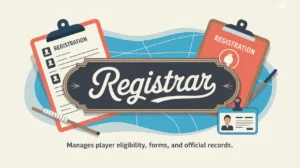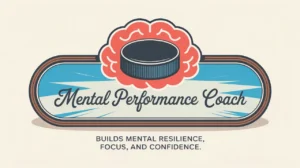Jim’s Intro to the Sports Psychologist
Hi folks, Jim here, the only commentator who once brought a chess board to sports psychologist session, sat down, looked them in the eye, and shouted, “Game on!”
What is a sports psychologist?
A sports psychologist is a licensed psychologist who applies psychological principles to help athletes enhance performance, manage stress, maintain mental well-being, and navigate the unique pressures of competitive sports.
While a mental performance coach focuses on practical tools for focus and confidence, the sports psychologist addresses underlying mental health factors, emotional regulation, and personal development, often working on a deeper clinical or therapeutic level when needed.
How does it work?
Sports psychologists support players through evaluation, mental health care, and performance enhancement:
Psychological Assessment
- They evaluate mental health, emotional well-being, motivation, and stress patterns, identifying areas that might affect both performance and quality of life.
- This can include anxiety, depression, burnout, or identity challenges common in high-pressure environments.
Mental Health Support
- Sports psychologists provide individual therapy, counseling, or structured interventions to help athletes manage mental health challenges.
- This may involve cognitive-behavioral techniques, mindfulness, emotional processing, or other evidence-based approaches.
Performance Enhancement
- Like mental performance coaches, they can also work on focus, confidence, visualization, and resilience. It is often with more emphasis on psychological underpinnings rather than purely skill-building.
Team Culture and Dynamics
- Sports psychologists sometimes work with teams to address communication breakdowns, leadership challenges, or group stress, improving the overall mental environment.
Life Transitions and Personal Development
- They support players through major transitions, like moving to new teams, recovering from injuries, retiring from competition, or handling public pressure.
- This includes identity work that helps athletes separate self-worth from performance outcomes.
Common Situations Involving Sports Psychologists
- Managing Anxiety or Burnout: Providing tools and support for players under chronic pressure.
- Post-Injury Emotional Recovery: Helping players navigate fear, frustration, or identity struggles.
- Handling High Expectations: Supporting elite athletes in balancing personal and competitive stress.
- Team Culture Challenges: Mediating dynamics or helping groups adapt to adversity.
- Life Transitions: Guiding players through career shifts or personal growth moments.
How do you make good decisions with it?
Effective use of sports psychology relies on openness, confidentiality, and integration.
- Normalize Seeking Support: Mental health care is as vital as physical therapy.
- Protect Privacy: Players need safe spaces to speak openly.
- Integrate, Don’t Replace: Sports psychologists complement coaching and performance staff.
- Address Issues Early: Don’t wait for crises to bring in psychological support.
- Value the Whole Person: Performance improves when well-being is supported.
How do you master it?
Mastering the sports psychologist role requires clinical expertise, sport-specific knowledge, and trust-building skills. The best practitioners understand both the athlete’s mind and the demands of the sport, bridging therapy and performance seamlessly. They create environments where players feel seen as people, not just performers.
What does it look like when done right?
A great sports psychologist helps create teams where players feel mentally healthy, emotionally supported, and capable of performing under pressure. Individuals grow stronger both on and off the ice, and mental health issues are addressed proactively, not reactively.
Commentator’s Corner
Jim’s Take
The sports psychologist is like the foundation under the rink. You don’t see it, but without it, everything on top starts to crack.
Parent Tip
Encouraging athletes to value mental health early helps them build resilience for the long run. It’s not weakness. It’s preparation.
Player Tip
Talking to a sports psychologist doesn’t mean something’s “wrong.” It means you’re taking ownership of your mental game just like your physical one.
A Final Thought
The sports psychologist is the anchor of mental well-being and performance resilience, blending therapeutic expertise with athletic understanding. When mastered, the role combines clinical care, trust, and performance insight, building stronger athletes and healthier teams.









